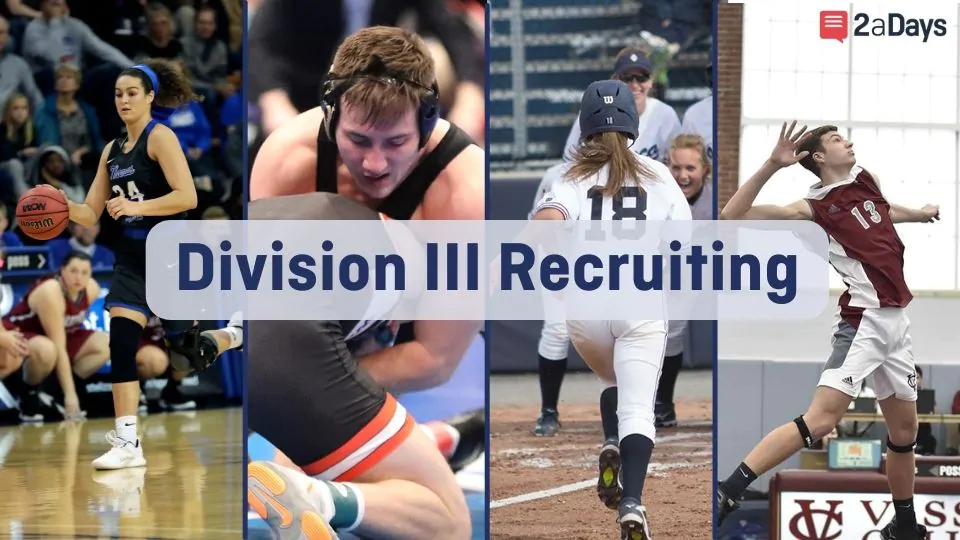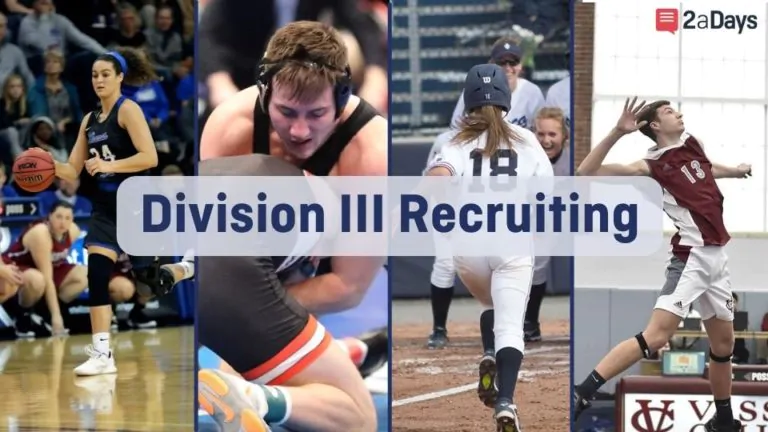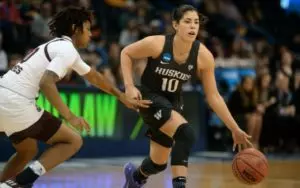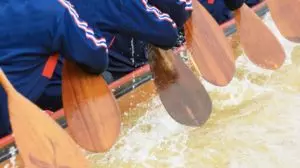No matter what level you're getting recruited to play at, the recruiting process can be both exhilarating and overwhelming. The hardest part is knowing all the rules – they differ between the NCAA, NAIA, and JUCO, but they also differ between the divisions in each of those associations. Having an awareness of these rules will help you prevent your own recruiting horror story.
Division III athletics may offer a solution to athletes who are confused by the college recruiting landscape – the DIII recruiting process actually has the most lenient rules. We talked to a former DIII coach to learn the ins and outs of DIII recruiting. Knowing these differences will help you if you're being recruited by DIII coaches or by coaches across all levels.
Related: Why I Chose DIII Sports
1. No dead periods
Unlike DI recruiting, there are no dead periods in DIII recruiting. Coaches generally have to wait until after June 15th after athletes' sophomore year of coaches, but once that date passes, they can contact athletes any day, and any time.
2. 24/7/365 recruiting window
Because there are no dead periods (times when coaches aren't allowed to contact recruits), coaches can spend every day of the year recruiting. They can choose their own schedule: whether they want to recruit during the season, how often they want to travel, etc. This means that you can leave a voicemail or send an email and hopefully get a response any time of the year.
3. More time to evaluate
The fact that coaches can recruit year-round is a double-edged sword. One on hand, it gives coaches more freedom to recruit and take their time getting to know the athletes. On the other hand, coaches are also hesitant to take a day off (weekends, or even holidays) because any minute they're not recruiting, another coach could be getting a head start. Keep this in mind as you're going through the process. Ask coaches when they prefer to be contacted, and let them know when you prefer the same.
Related: Rate your Coaches, Facilities, and Campus Visits
4. Coaches are more analytics based
At the DIII level, coaches don't often get the best athletes in the nation, so looking at the ESPN top-rated recruits isn't very productive. Instead, they look at the numbers and determine who will be able to improve and make an impact in the long run (Moneyball, anyone?). This can benefit the underrated athletes that aren't given a chance by other coaches. DIII Baseball coach Dan Briand said:
“We're looking for guys that slipped through the cracks… We want the guys that may have been a tick slower (they ran a 6.9s 60m instead of a 6.6).”
So, they give those underrated players a chance, usually with great success.
5. Coaches can tell if you're faking it
This holds true at any level, but coaches can see through the bull sh*t. Even though they're DIII, they still want to recruit good students, athletes, and teammates. They can tell if you're faking talent or hiding your intentions just by looking at your highlight reels and by meeting you, so make sure to be genuine.
Related: Why I Chose DIII Sports
6. Fewer athletes to sift through
One reality of being a DIII coach is that not every somewhat-talented athlete in the country is bombarding your phone and email. Much fewer athletes reach out to DIII coaches, which means the coaches can dedicate the time to read, and usually respond to every email. This, plus the unlimited number of recruiting days, gives them much more time to evaluate and meet recruits.
7. More time to look at tape
Going off of number 6, coaches also have more time to look at highlight reels. This doesn't mean they aren't still busy – keep your highlight video short and impressive – but it means they will probably take the time to watch your video, and will likely ask for a full-game film if they like what they see.
Related: 5 Highlight Hacks from a Former DIII Basketball Coach
8. No scholarships
DIII coaches cannot offer any financial assistance to their athletes. This means that if you play at the DIII level, you do it because you love the sport. You have to be ready to make the time commitment without ever seeing any monetary reward for it. That said, the absence of scholarships gives you the opportunity to find a school that is perfect for you, without letting financial offers influence your decision.
Related: What Makes Division III Scholarships Different
9. Finding the right fit
DIII coaches are there because they love the sport and they want to help student-athletes pursue their dreams on and off the court. They will let you know if they want you on their team, but they care just as much about finding the right fit for you, even if it means helping you look elsewhere. At the end of the day, they want to make sure you end up somewhere that will foster your academic and athletic growth.
When it comes to the college recruiting process, there are ins and outs of every division, and then ins and outs and even deciding which division to target. Knowing some of the differences can help you decide which to target, and how to navigate the recruiting process.
End: Have an idea for a story or a question you need answered? Want to set up an interview with us? Email us at [email protected]
* Originally published on April 1, 2022, by Jaime Evers







